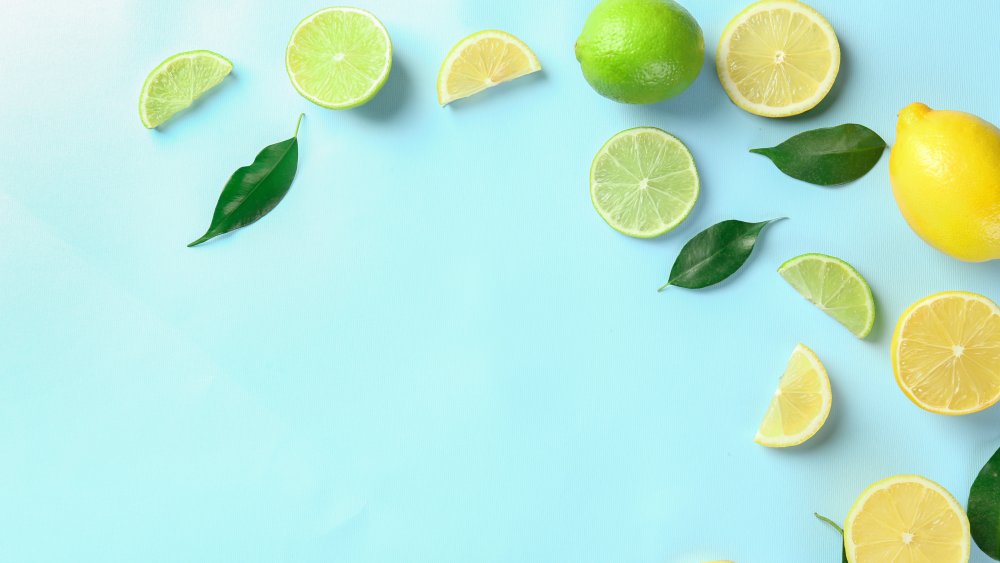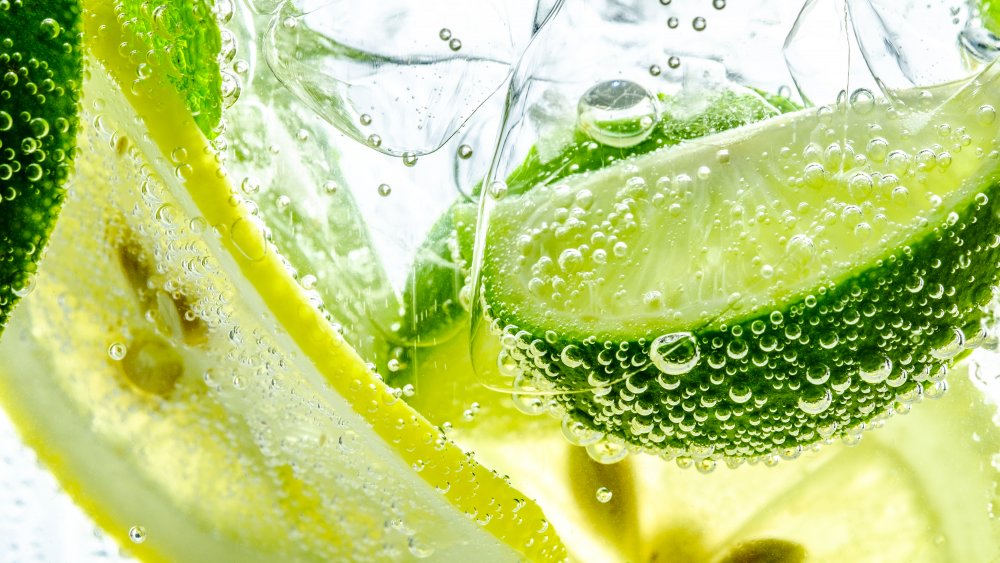The Weird Difference Between Lemons And Limes
If you keep lemons and limes on hand to add a squeeze to your tea or a twist to your happy hour cocktail, then you might not have thought much about the difference between these two kinds of citrus fruits. Each might, by and large, seem the same, or even interchangeable — but there are more differences between the two kinds of citrus than the simply color of their skins.
According to US Citrus, one of the key differences between lemons and limes is that regular limes are a little less flavorful, which is why lemons or key limes are used for punchier recipes. However, limes pair perfectly with tropical dishes while lemons better lend themselves to European recipes. With regard to nutrition, limes are technically healthier because they tend to have higher amounts of vitamins and minerals like vitamins A and C, calcium, folate, and phosphorus. Lemons tend to be more acidic and have minerals like potassium and magnesium.
One strange difference between lemons and limes? Toss them in water to find out
The most surprising difference of all, however, might be that lemons float while limes sink. If you toss a few in a bowl of water, you should find out that this is true. If you're thinking that perhaps the skin of the citrus has something to do with whether or not they sink or float, that's actually not the case. In an experiment conducted by Best Food Facts along with RD Sarah Downs, they tested both kinds of citrus whole, peeled, and sliced. In all three cases, the limes continued to sink further and further down into the water while the lemons stayed fairly close to the surface.
Even after the pieces shed their skin or were sliced, the flesh of the citrus continued to sink, even for lemons, though they remained closer to the top of the water. According to Downs, "The reason limes sink and lemons float is due to density, or the mass per unit of volume. An object will float if it is less dense than the liquid it is placed in and will sink if it is denser than the liquid it is placed in. Lemons and limes both have densities that are very close to water, so you would expect that they would both float. However, limes are slightly denser than lemons, which is why they sink and lemons float."
So, the next time you drop a slice of either into your drink, you'll know why it sinks or floats.

